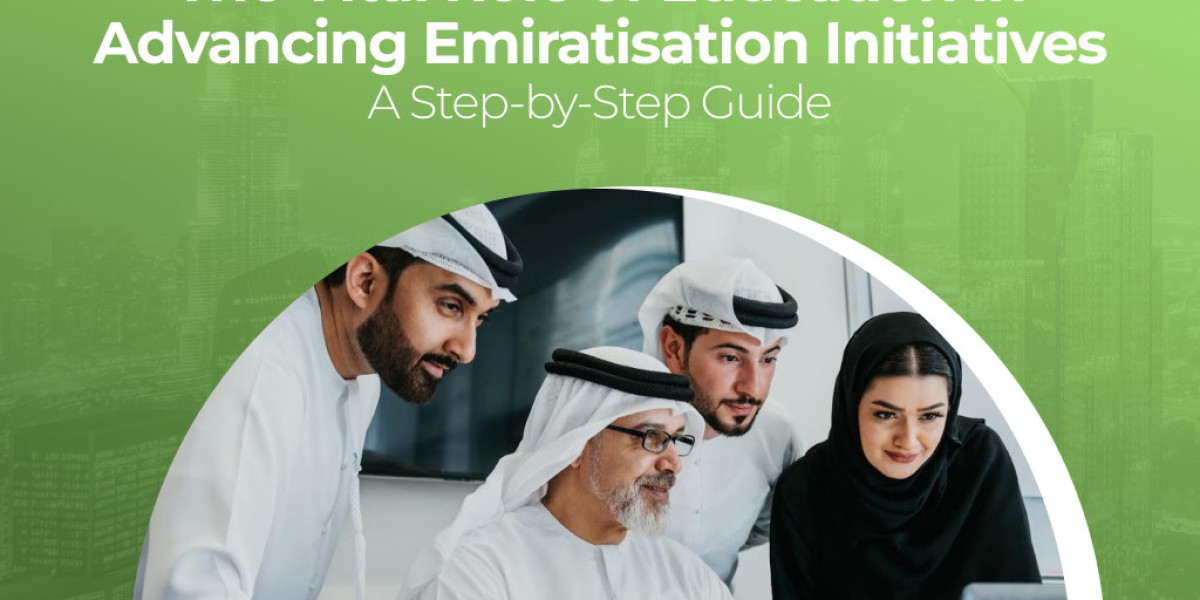Introduction to Emiratisation
Emiratisation stands as a cornerstone of the United Arab Emirates' (UAE) vision for sustainable development and national prosperity. It is a strategic initiative aimed at increasing the participation of Emirati nationals in the workforce, particularly in the private sector. In this comprehensive guide, we delve into the intricacies of Emiratisation, exploring its significance, challenges, and strategies, while also shedding light on the concept of staff outsourcing and its relation to Emiratisation.
Emiratisation: A Vital Component of UAE's Vision
Emiratisation is a term coined to describe the UAE government's policy of promoting the employment of its citizens in various sectors of the economy, with a primary focus on the private sector. This initiative is rooted in the belief that a skilled and empowered local workforce is essential for the sustainable growth and development of the nation. By encouraging the participation of Emiratis in the workforce, the UAE aims to reduce reliance on expatriate labor, enhance national identity, and foster economic diversification.
Key Components of Emiratisation
Government Incentives and Support: The UAE government offers a range of incentives and support mechanisms to encourage private sector organizations to hire Emirati nationals. These include financial incentives, such as grants and subsidies, as well as non-financial support, such as training programs and career development initiatives.
Education and Skill Development: Investing in education and skill development is crucial for preparing Emirati nationals to enter the workforce. The UAE has made significant strides in this regard, with initiatives aimed at enhancing the quality of education, promoting vocational training, and fostering a culture of lifelong learning among citizens.
Awareness and Advocacy: Raising awareness about the benefits of Emiratisation and advocating for the inclusion of Emiratis in the workforce are essential components of the initiative. Government agencies, industry associations, and media outlets play a key role in promoting Emiratisation and dispelling myths and misconceptions surrounding the employment of local talent.
Staff Outsourcing: A Strategic Approach to Emiratisation
Staff outsourcing refers to the practice of contracting third-party service providers to manage certain aspects of a company's workforce, such as recruitment, payroll administration, and employee benefits. While some may view outsourcing as contradictory to the goals of Emiratisation, when done strategically, it can complement efforts to promote the employment of Emirati nationals.
Bridging Skills Gaps: Staff outsourcing allows organizations to access specialized skills and expertise that may not be readily available in the local labor market. By outsourcing certain functions, companies can focus on developing the skills of their Emirati workforce in areas where there is a shortage of talent.
Enhancing Efficiency and Productivity: Outsourcing non-core functions can free up resources and streamline operations, allowing companies to focus on their core business activities. This can lead to increased efficiency and productivity, ultimately contributing to the growth and competitiveness of the organization.
Facilitating Knowledge Transfer: Through strategic partnerships with outsourcing providers, companies can facilitate knowledge transfer and skills development among Emirati employees. By working alongside experienced professionals, Emiratis can gain valuable insights and expertise that can further enhance their career prospects.
FAQs about Emiratisation and Staff Outsourcing:
What are the main challenges hindering the success of Emiratisation?
Emiratisation faces several challenges, including a mismatch between the skills of Emirati nationals and the demands of the labor market, a preference for public sector employment, and cultural perceptions regarding certain job roles. Addressing these challenges requires a concerted effort from government agencies, private sector organizations, and educational institutions to align education and training programs with the needs of the economy and promote a culture of entrepreneurship and innovation among Emirati youth.
How can companies ensure compliance with Emiratisation quotas while outsourcing staff?
Companies can ensure compliance with Emiratisation quotas by working closely with outsourcing providers to develop strategies that prioritize the recruitment and development of Emirati talent. This may involve setting specific targets for Emirati participation, providing training and career development opportunities for Emirati employees, and regularly monitoring and reporting on progress towards Emiratisation goals.
What role can outsourcing play in supporting Emiratisation efforts in specific industries?
Outsourcing can play a significant role in supporting Emiratisation efforts in industries where there is a shortage of local talent or a need for specialized skills. For example, in sectors such as technology and healthcare, outsourcing providers can help companies access global talent pools and innovative solutions while also facilitating the transfer of knowledge and expertise to Emirati employees.
Conclusion
Emiratisation is not just a government initiative; it is a national imperative that requires collective action and collaboration between the public and private sectors, educational institutions, and the wider community. By understanding the significance of Emiratisation, addressing its challenges, and embracing strategic approaches such as staff outsourcing, the UAE can build a diverse, inclusive, and sustainable workforce that drives economic growth and prosperity for generations to come.








